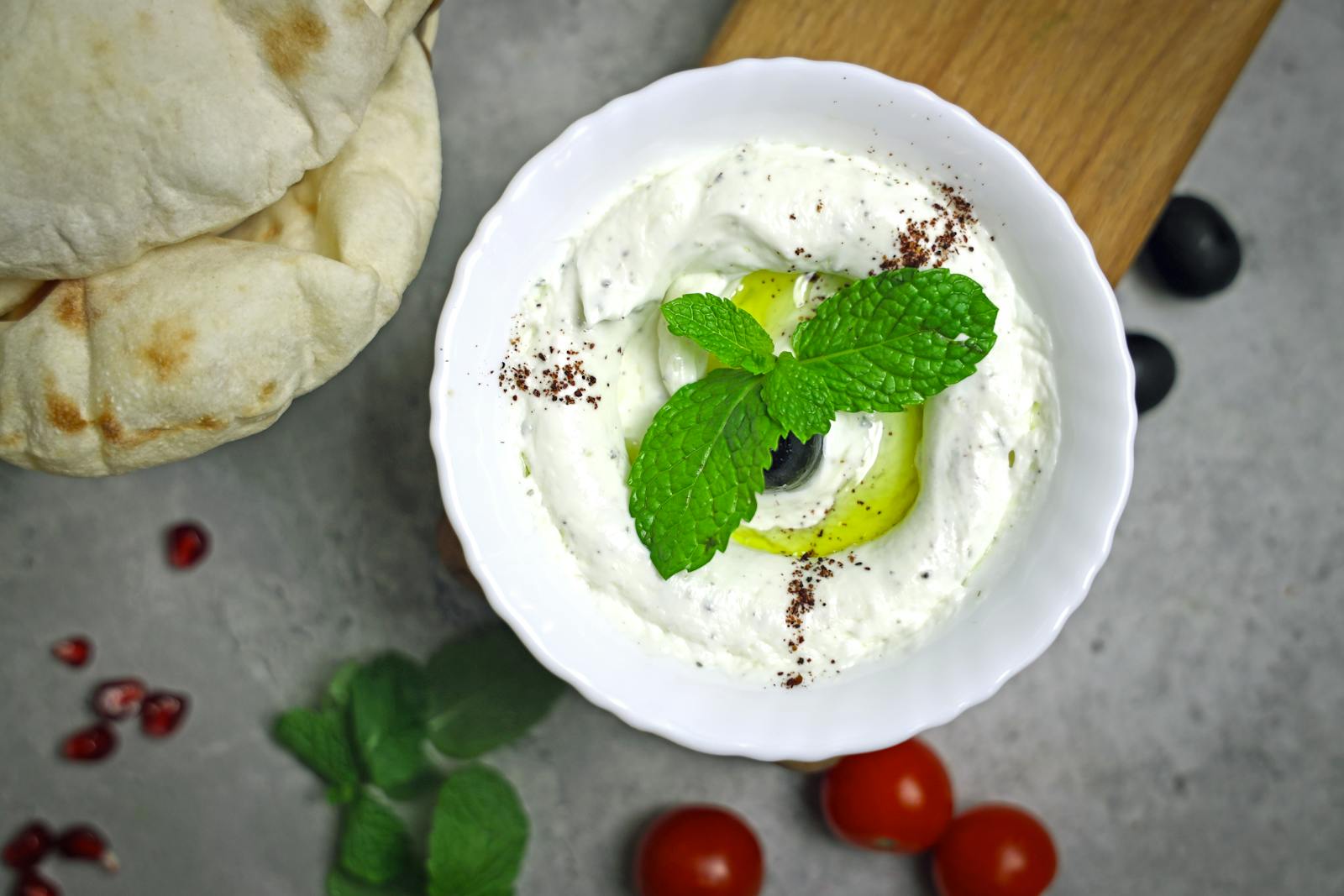In our fast-paced lives, it’s essential to find ways to manage stress and relax, not only for our mental well-being but also for our overall health. While exercise, meditation, and good sleep hygiene are common methods of stress management, nutrition plays an equally important role in supporting relaxation and reducing anxiety. Certain foods contain essential nutrients that can help regulate stress hormones, boost mood, and promote a sense of calm. From dark chocolate to lentils, incorporating these stress-relieving foods into your daily routine can help you unwind and maintain your emotional balance.
Below are 13 foods that promote relaxation, reduce stress, and contribute to overall well-being. Let’s explore how these foods work and how you can integrate them into your diet to help you feel more relaxed and at ease.
1. Dark Chocolate
Dark chocolate is a delicious way to manage stress and promote relaxation. Rich in antioxidants, particularly flavonoids, dark chocolate helps reduce levels of cortisol, the body’s primary stress hormone. Flavonoids also improve blood flow to the brain, which can enhance cognitive function and mood. When eaten in moderation, dark chocolate can help create a sense of calm and boost feelings of happiness, making it an ideal snack for unwinding after a long day.
How It Promotes Relaxation:
- Reduces cortisol levels, helping to manage stress.
- Improves blood flow to the brain, enhancing mood and cognitive clarity.
- The indulgent taste of dark chocolate can provide a satisfying and calming experience.
How to Incorporate:
- Enjoy a few squares of dark chocolate as an afternoon treat or dessert.
- Use dark chocolate in homemade snacks, such as energy balls or yogurt parfaits.
Why It’s Important: Dark chocolate is a rich source of antioxidants that help combat stress hormones, making it a guilt-free way to relax.
2. Avocado
Avocados are packed with healthy fats, particularly monounsaturated fats, which help regulate blood pressure and keep anxiety in check. Avocados are also rich in potassium, which helps reduce hypertension and maintain a balanced mood. Additionally, the creamy texture of avocados provides a comforting eating experience, adding to the sense of relaxation they promote.
How It Promotes Relaxation:
- The healthy fats in avocados support brain function and help balance stress hormones.
- High in potassium, avocados help lower blood pressure, promoting a calm state of mind.
- The creamy texture of avocados adds to the sensory satisfaction, aiding in relaxation.
How to Incorporate:
- Add avocado to salads, smoothies, or spread on whole-grain toast for a nutrient-dense snack.
- Use avocados as a base for guacamole, or incorporate them into dips and dressings.
Why It’s Important: Avocados provide essential nutrients that help lower stress levels, making them an excellent food for managing anxiety and supporting relaxation.
3. Berries
Berries such as blueberries, strawberries, and raspberries are packed with vitamin C and antioxidants, which help protect the body against oxidative stress. Oxidative stress can worsen anxiety and stress levels, but the powerful antioxidants in berries neutralize these harmful effects, allowing the body and mind to relax. The natural sweetness of berries also satisfies cravings without the guilt, making them an ideal snack to boost both mood and energy.
How They Promote Relaxation:
- The high vitamin C content helps lower cortisol levels and combat oxidative stress.
- Antioxidants in berries protect the brain and body from stress-related damage.
- The bright colors and natural sweetness of berries can uplift mood and offer a calming sensory experience.
How to Incorporate:
- Enjoy fresh or frozen berries as a snack, or add them to yogurt, oatmeal, or smoothies.
- Use berries in desserts or salads for a refreshing burst of flavor.
Why It’s Important: Berries are loaded with stress-fighting nutrients that promote relaxation and improve mood while satisfying your sweet tooth.
4. Fatty Fish
Fatty fish such as salmon, mackerel, and sardines are rich in omega-3 fatty acids, which are known to reduce inflammation and improve mental health by lowering levels of stress and anxiety. Omega-3s are crucial for brain function and can help improve mood by regulating the production of neurotransmitters such as serotonin. Fatty fish also supports heart health, adding to overall well-being.
How It Promotes Relaxation:
- Omega-3 fatty acids in fatty fish help reduce inflammation and improve mental well-being.
- Supports the production of serotonin, a key neurotransmitter that helps regulate mood.
- The rich, savory taste of fatty fish can be a comforting and satisfying addition to meals.
How to Incorporate:
- Grill or bake fatty fish for a healthy, heart-friendly dinner.
- Add salmon or mackerel to salads, grain bowls, or sandwiches.
Why It’s Important: Fatty fish are packed with omega-3s that help regulate stress levels and promote a sense of calm and relaxation.
5. Nuts and Seeds
Nuts and seeds are an excellent source of magnesium, a mineral that helps regulate the body’s stress response by controlling cortisol levels. Magnesium plays a crucial role in promoting relaxation by supporting muscle function and calming the nervous system. Nuts and seeds, such as almonds, pumpkin seeds, and sunflower seeds, are also rich in healthy fats and provide a satisfying crunch that can help alleviate stress-related cravings.
How They Promote Relaxation:
- Magnesium in nuts and seeds helps control cortisol levels and promote relaxation.
- Healthy fats support brain health and help regulate mood.
- The crunchy texture provides a satisfying eating experience, helping reduce stress.
How to Incorporate:
- Snack on a handful of mixed nuts and seeds or add them to salads and yogurt.
- Use nut butter as a spread on toast or blend it into smoothies.
Why It’s Important: Nuts and seeds are rich in nutrients that help regulate stress and anxiety while providing a satisfying and healthy snack.
6. Green Tea
Green tea contains L-theanine, an amino acid that has calming effects on the brain, reducing anxiety and promoting relaxation. L-theanine helps increase the production of alpha waves, which are associated with a state of wakeful relaxation. Green tea also provides a gentle amount of caffeine, offering a mild energy boost without the jitters, making it a perfect choice for moments when you need to unwind without losing focus.
How It Promotes Relaxation:
- L-theanine helps reduce stress and anxiety by promoting relaxation in the brain.
- The gentle caffeine content provides energy without overstimulation.
- The ritual of sipping warm green tea can create a calming experience that promotes relaxation.
How to Incorporate:
- Enjoy a cup of green tea in the afternoon or evening to unwind.
- Add a splash of lemon or honey for added flavor and relaxation benefits.
Why It’s Important: Green tea’s L-theanine content makes it an ideal beverage for calming the mind and promoting a balanced, relaxed state.
7. Leafy Greens
Leafy greens like spinach, kale, and Swiss chard are packed with magnesium, a mineral that helps manage stress and promote relaxation. Magnesium helps regulate stress hormones and maintain a calm nervous system. Leafy greens are also rich in folate, which plays a role in the production of dopamine, a neurotransmitter associated with happiness and relaxation.
How They Promote Relaxation:
- Magnesium helps control stress hormones and promotes muscle relaxation.
- Folate supports dopamine production, improving mood and emotional well-being.
- The vibrant colors and fresh flavors of leafy greens enhance the overall sensory experience of meals.
How to Incorporate:
- Use leafy greens in salads, stir-fries, or smoothies.
- Sauté spinach or kale with garlic and olive oil for a flavorful and relaxing side dish.
Why It’s Important: Leafy greens provide essential nutrients that help the body manage stress, making them an important part of a balanced, relaxing diet.
8. Oats
Oats are a complex carbohydrate that helps stabilize blood sugar levels, reducing stress and anxiety. Oats also support the production of serotonin, a neurotransmitter that promotes feelings of well-being and relaxation. The fiber content in oats aids digestion, which is linked to better mood and mental clarity, while their warmth and texture provide a soothing and comforting meal experience.
How They Promote Relaxation:
- Complex carbohydrates stabilize blood sugar, preventing energy crashes that can lead to stress.
- Oats support serotonin production, which promotes a relaxed state of mind.
- The hearty texture of oats provides a comforting and nourishing start to the day.
How to Incorporate:
- Start your morning with a warm bowl of oatmeal topped with nuts, berries, and a drizzle of honey.
- Use oats in homemade energy bars or smoothies for a stress-relieving snack.
Why It’s Important: Oats provide slow-releasing energy and support serotonin production, making them a calming and comforting food for managing stress.
9. Greek Yogurt
Greek yogurt is rich in probiotics, which help support gut health—an essential component in managing stress and promoting relaxation. A healthy gut is linked to a healthy brain through the gut-brain axis, meaning that consuming probiotic-rich foods like Greek
yogurt can improve mood and reduce anxiety. Greek yogurt is also a great source of protein, which helps stabilize blood sugar levels and prevent mood swings.
How It Promotes Relaxation:
- Probiotics in Greek yogurt support gut health, which is linked to lower anxiety and stress levels.
- High in protein, Greek yogurt helps stabilize blood sugar and maintain energy levels.
- The creamy texture and tangy flavor offer a satisfying and comforting eating experience.
How to Incorporate:
- Enjoy Greek yogurt on its own or add it to smoothies, parfaits, or fruit bowls.
- Use Greek yogurt as a base for dips, sauces, or salad dressings.
Why It’s Important: Greek yogurt supports gut health and mood regulation, making it a beneficial food for reducing stress and promoting relaxation.
10. Chamomile Tea
Chamomile tea is well-known for its calming properties and is often used to promote relaxation and reduce anxiety. Chamomile contains apigenin, an antioxidant that binds to receptors in the brain, helping to induce relaxation and improve sleep quality. Sipping on a warm cup of chamomile tea before bedtime can help create a peaceful evening routine, making it easier to unwind and prepare for restful sleep.
How It Promotes Relaxation:
- Chamomile contains apigenin, which has a calming effect on the brain and nervous system.
- Promotes better sleep quality by reducing anxiety and promoting a state of relaxation.
- The soothing aroma and warmth of chamomile tea offer a sensory experience that enhances relaxation.
How to Incorporate:
- Drink a cup of chamomile tea in the evening to unwind and prepare for bed.
- Add honey or lemon for added flavor and relaxation benefits.
Why It’s Important: Chamomile tea’s calming properties make it an ideal beverage for reducing anxiety and promoting a restful state before bedtime.
11. Turmeric
Turmeric is a potent anti-inflammatory spice known for its health benefits, particularly for reducing stress and promoting relaxation. The active compound curcumin in turmeric has been shown to reduce levels of inflammation and oxidative stress in the body, both of which can contribute to anxiety. Incorporating turmeric into meals can support relaxation by helping the body cope with stress more effectively.
How It Promotes Relaxation:
- Curcumin helps reduce inflammation and oxidative stress, supporting relaxation.
- Turmeric may help regulate mood by supporting brain health and reducing stress.
- The warm, earthy flavor of turmeric enhances the sensory experience of meals, adding a sense of comfort.
How to Incorporate:
- Add turmeric to curries, soups, or stir-fries for a flavor boost and relaxation benefits.
- Enjoy a warm turmeric latte with almond milk and honey as a calming evening drink.
Why It’s Important: Turmeric’s anti-inflammatory properties make it a powerful spice for reducing stress and promoting overall well-being.
12. Oranges
Oranges are packed with vitamin C, which helps reduce cortisol levels and improve immune function. Vitamin C is a powerful antioxidant that helps protect the body from oxidative stress and boosts the production of neurotransmitters like serotonin, promoting a calm and relaxed state. The fresh, citrusy aroma and juicy sweetness of oranges can also uplift your mood, making them a refreshing and relaxing snack.
How They Promote Relaxation:
- Vitamin C helps lower cortisol levels and improve mood.
- The citrus aroma and juicy flavor of oranges provide an uplifting sensory experience.
- Oranges support immune function, helping the body cope with stress more effectively.
How to Incorporate:
- Enjoy a fresh orange as a snack, or drink a glass of fresh-squeezed orange juice.
- Add orange slices to salads or smoothies for a refreshing burst of flavor.
Why It’s Important: Oranges are rich in vitamin C, which helps lower stress hormones and supports immune function, promoting relaxation and well-being.
13. Lentils
Lentils are a nutrient-dense food rich in folate and magnesium, both of which help regulate mood and reduce stress. Folate plays a role in producing neurotransmitters like dopamine and serotonin, which are crucial for maintaining a positive mood and sense of well-being. Lentils are also a great source of fiber and protein, which help stabilize blood sugar levels and provide sustained energy, preventing stress-induced energy crashes.
How They Promote Relaxation:
- Folate supports the production of mood-regulating neurotransmitters, reducing stress.
- Magnesium helps promote relaxation and stabilize stress hormone levels.
- The hearty, comforting texture of lentils provides a satisfying and grounding eating experience.
How to Incorporate:
- Use lentils in soups, stews, or salads for a nutrient-dense and satisfying meal.
- Add lentils to grain bowls or stir-fries for a hearty and grounding addition.
Why It’s Important: Lentils provide essential nutrients that help regulate mood and stress levels, making them a versatile and comforting food for promoting relaxation.
Conclusion: Nourishing the Body and Mind with Relaxation-Boosting Foods
Incorporating these stress-relieving foods into your daily diet is a natural and effective way to promote relaxation and manage anxiety. From the antioxidant power of dark chocolate to the calming effects of chamomile tea, these foods offer both nutritional benefits and sensory satisfaction that can help you unwind and maintain emotional balance. Prioritizing a diet rich in these essential nutrients not only supports your physical health but also contributes to mental well-being, helping you navigate life’s stresses with greater ease.
By making mindful food choices and integrating these relaxation-boosting ingredients into your meals, you can create a foundation for sustained calm, improved mood, and overall wellness.




